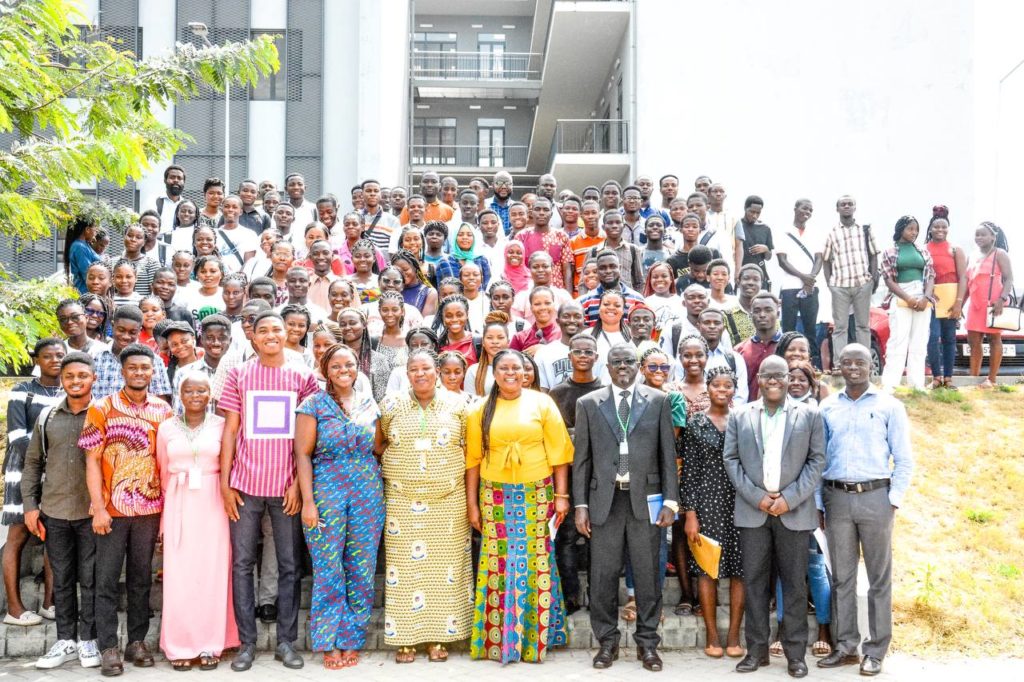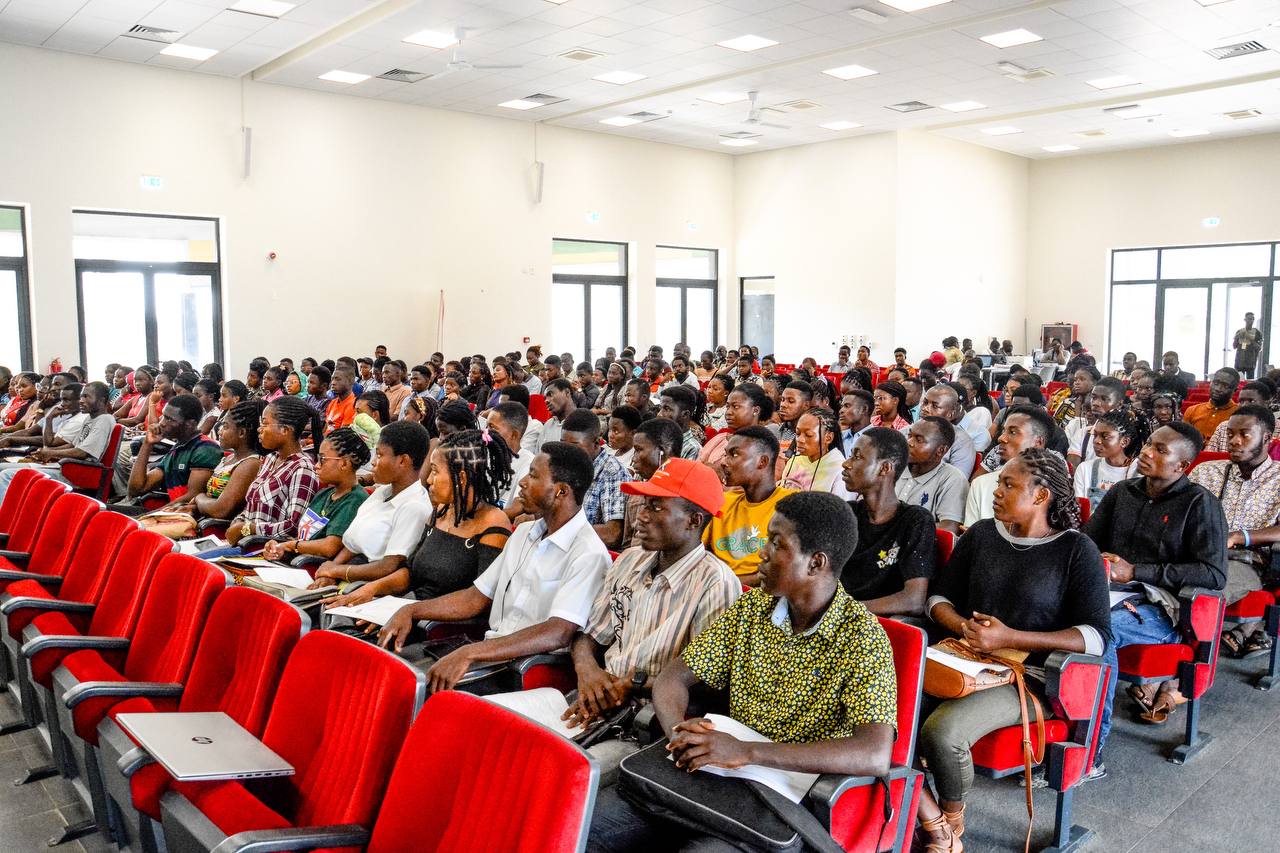The Vice-Chancellor of UESD, Prof. Eric Nyarko-Sampson has tasked the newly admitted students of the University to be guided by the core values of the University of Honesty, Opportunity, Perseverance, and Enterprise, HOPE. He said, these are the four pillars that guide the University to attain its goal of training students to be agents of change in society.
Prof. Nyarko-Sampson was speaking at the opening of a five-day orientation for the freshers, held in the Multi-Purpose Auditorium. It was observed by Management, staff members as well as the outgoing and incoming Executives of the Students Representative Council, SRC.
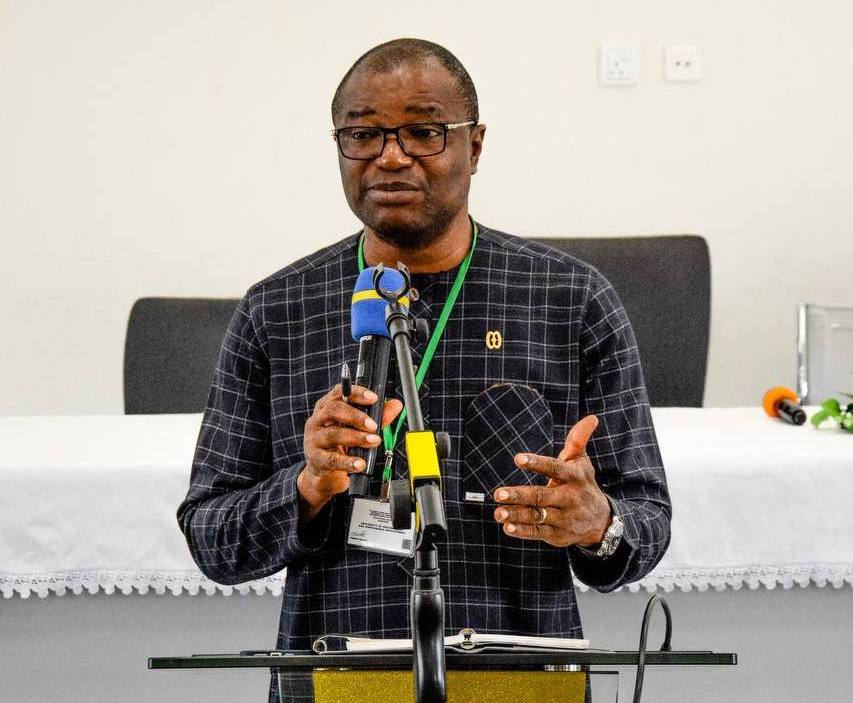
The first-year students who are the 3rd batch of students have been admitted into the School of Sustainable Development to read programmes in: BSc. Sustainable Development, BSc. Energy and Resources Economics, BSc. Energy Sustainability, BSc. Water Sanitation and Hygiene (WASH), BSc. Environmental Economics and Policy, BSc. Aquaculture Management and BSc. Water Resource Management.
Others are also at the School of Natural and Environmental Sciences (SNES), reading: BSc. Biological and Mathematical Sciences, BSc. Chemistry and Biological Sciences, BSc. Chemistry and Mathematical Sciences, BSc. Chemistry and Physics, BSc. Environment and Public Health, BSc. Environmental Management, BSc. Environmental and Sustainability Science, BSc. Geography and Earth Science, BSc. Mathematics, BSc. Nature Conservation Management, BSc. Physics and Biological Sciences, BSc. Physics and Mathematical Sciences.
Explaining the concept of the Core Values, Prof. Nyarko-Sampson, said, apart from gaining knowledge from their studies, students of UESD are trained to exude HOPE in their outlook. They are therefore trained to exhibit Honesty in their dealings with the people they come into contact with, seize Opportunities that come their way. He said, opportunities come as problems disguised, and solving these problems is rewarding and satisfactory.
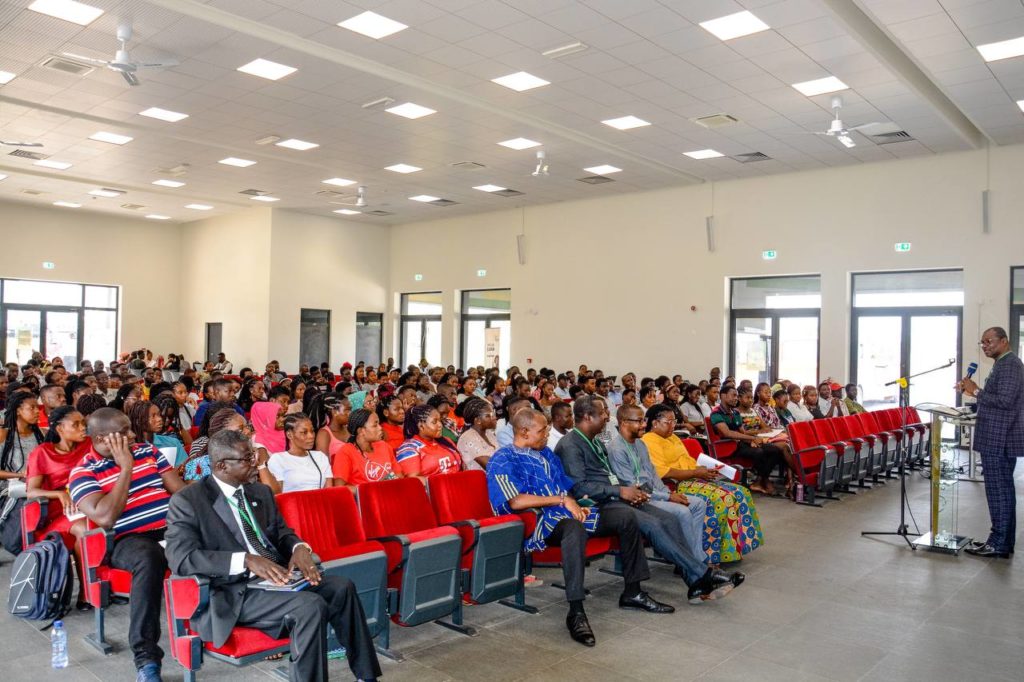
The third (3rd) virtue, Perseverance, he explained is undertaking a venture despite the difficulty or delay in achieving success. He also encouraged the students to persevere in their studies and indicated that the successful people they see around them attained that height through hard work and perseverance. Prof. Nyarko-Sampson said, students should not only undergo tertiary education training just to look for jobs. They should be Enterprising. This entails being resourceful and taking initiatives. He said, an entrepreneur in the long run creates employment in society thus lessening unemployment in the country.
The Vice-Chancellor advised the students to partake in activities on campus including seminars and other extra curricula activities. They should also abide and be guided by the principles that define the institution. He told the students that the University is practicing waste segregation. They should therefore study the terrain and join the fray towards ensuring a clean and safe environment conduciveto learning.
He said, the University is available to offer the necessary support towards their development and encouraged them to work hard.
The Registrar, Mrs. Mary A. Agyepong, took the students through the Administration, Academic Structure and Regulation of the University. She told them, they have the opportunity to get the best education with the state-of-the-art facilities and the UESD’s role is to position students to be agents and partners of change which is a key ingredient necessary for the development of the institution and the country at large. She said, the University has three that are to be read by the freshers. These are the Statutes, the Students handbook and the
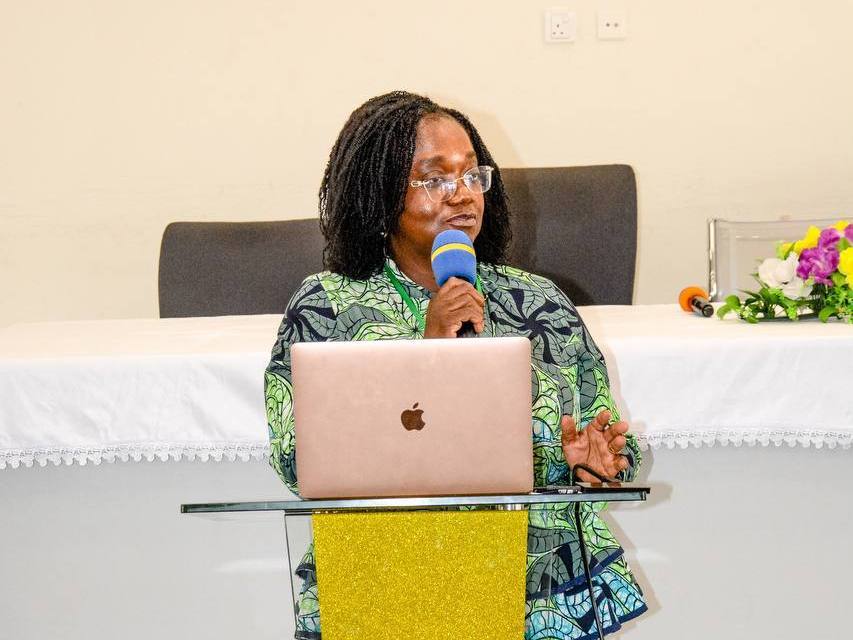
The Senior Assistant Registrar at the Office of the Vice-Chancellor, Dr. Hammond Oppong Kwarteng took the students through the history of the University, from the period the idea was conceived, through the inauguration, recruitment of staff and admission of students to its present state.
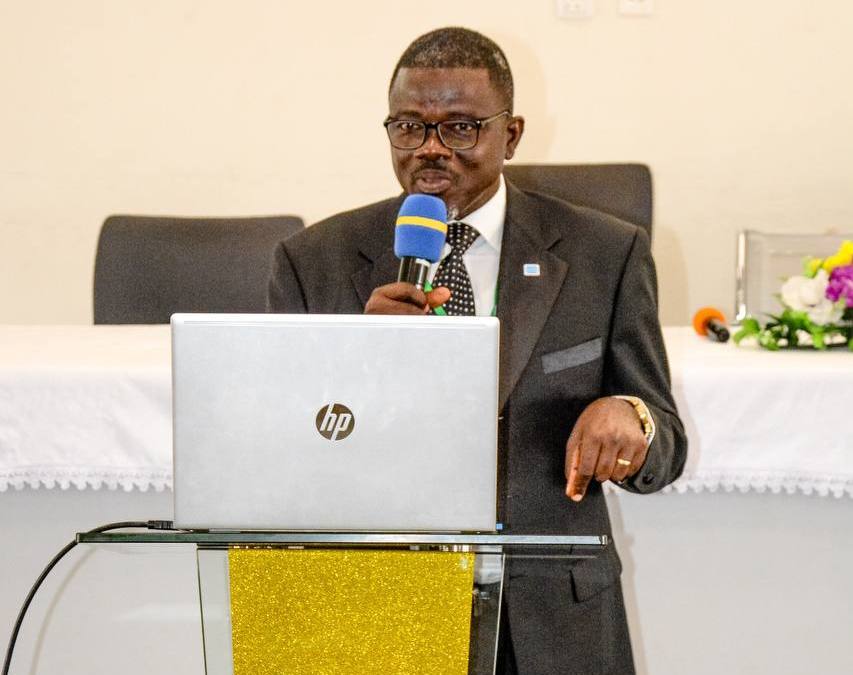
The Dean of Students, Dr. Daniella D. Sedegah was the moderator of the orientation.
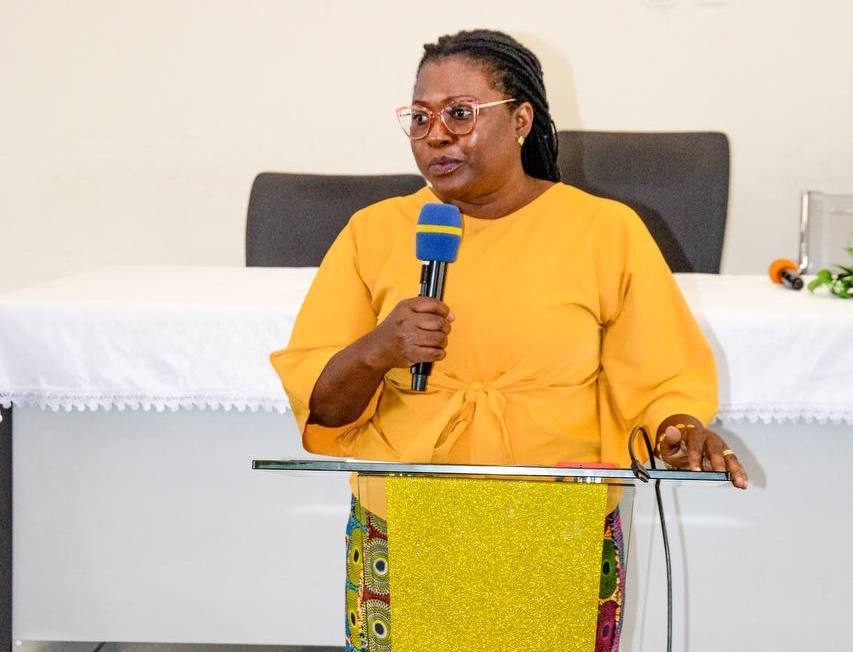
Topics the freshers will be taken through during the five-day period include: the nature of teaching and learning processes in a university, use of library facilities and resources, students’ role in the administration (SRC & JCR systems, club associations, handling of students disputes and grievances), use of university facilities, the residential policy of the University, accessing counseling services and study habits and the assessment and evaluation system of the University.
